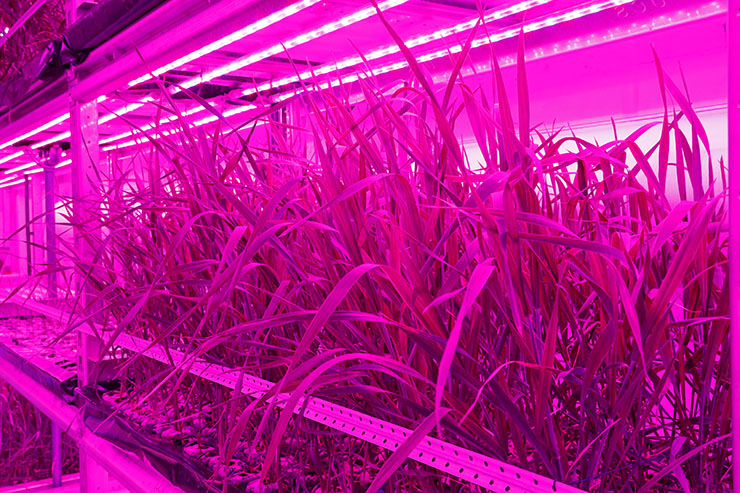
How can bread be baked on Mars? This is the challenge facing the Space Bakery Project; a consortium led by Puratos, comprising seven Belgian organisations.
However, before their research is used to help feed the first people to land on the red planet later this century, the project aims to have a clear impact on Earth today. It will focus on how we can produce food in a more sustainable way and will help to provide nutritional staple food for regions across the globe. The consortium started its research on 1 January 2020, which will be continued for a period of two-and-a-half years. In order to fund the research, the seven partners will invest a total of 6.3 million euros.
Four large interconnected containers have been installed at Puratos’ headquarters near Brussels, Belgium. From the outside, they may look ordinary, but inside it’s a different story with the containers housing a closed organic plant cultivation system and bakery, where researchers have already begun their work.
Using the plant cultivation infrastructure, the researchers will learn how to create the ideal environment for the efficient production of wheat crops, as well as other plants that could be included in bread to increase its nutritional value. But, why focus on bread? The reason is simply that bread is highly nutritional and is consumed all over the world, making it an ideal candidate as a staple food for space exploration.
Filip Arnaut, Upstream R&D Director at Puratos when asked about the project, said: “With this consortium, we are bringing together various knowledge banks and expertise in order to answer the very important question of how we can further improve the nutritional value, sustainability and efficient use of energy to produce food? Here, we are looking at bread, which today is one of our main specialties, but which will also be important tomorrow in more challenging environments.”
The environment on Mars is very different from that on Earth; the lack of atmosphere, cold temperatures and dust storms are not conducive for providing the right conditions for crop growth. So, for this reason, research will take place in the containers, providing a closed and self-sustainable system in which the climate can be adapted to make it suitable for crop growth, with optimal use of resources.
Working in parallel with the research on crops, the consortium will also study many other aspects involved in the entire food production cycle, such as the use and recycling of resources, the monitoring of a microbial climate, the influence of radiation, and pollination through automated drones.
Members of the consortium:
1. The consortium is led by Puratos, an international producer of ingredients and solutions for the bakery, pastry and chocolate sector.
2. Urban Crop Solutions, a provider of solutions for vertical farming, developed the infrastructure for plant growth and engineered a biosphere with a variable climate in a hermetically sealed building in which different climatic conditions can be simulated.
3. Magics Instruments, a technology company specialising in the development of semiconductor chips and machine learning-based smart sensors, will focus on the automation of pollination and work with Urban Crop Solutions to investigate how artificial intelligence can optimize crop growth.
4. SCK•CEN, the Biosciences research group, will study the effect of microorganisms on the release of nutrients to plants and monitor the overall microbial climate in the closed environment.
5. Ghent University, through its applied plant eco-physiological research at the Faculty of Bioscience Engineering, will create a 3D model of wheat growth and development using functional-structural plant modelling and data from innovative plant sensors.
6. The University of Hasselt, with its center for environmental science, will analyze how the waste of the wheat plant can be used to make the closed biosphere system circular by reusing organic matter.
7. Flanders Food, the agri-food spearhead cluster and supporter of the project, will focus on collaboration across the food value chain.


